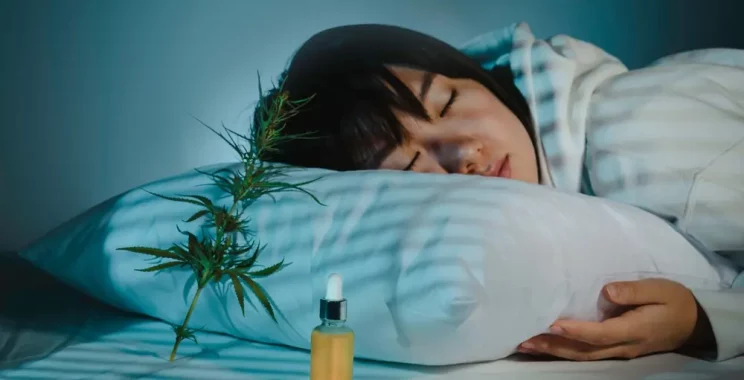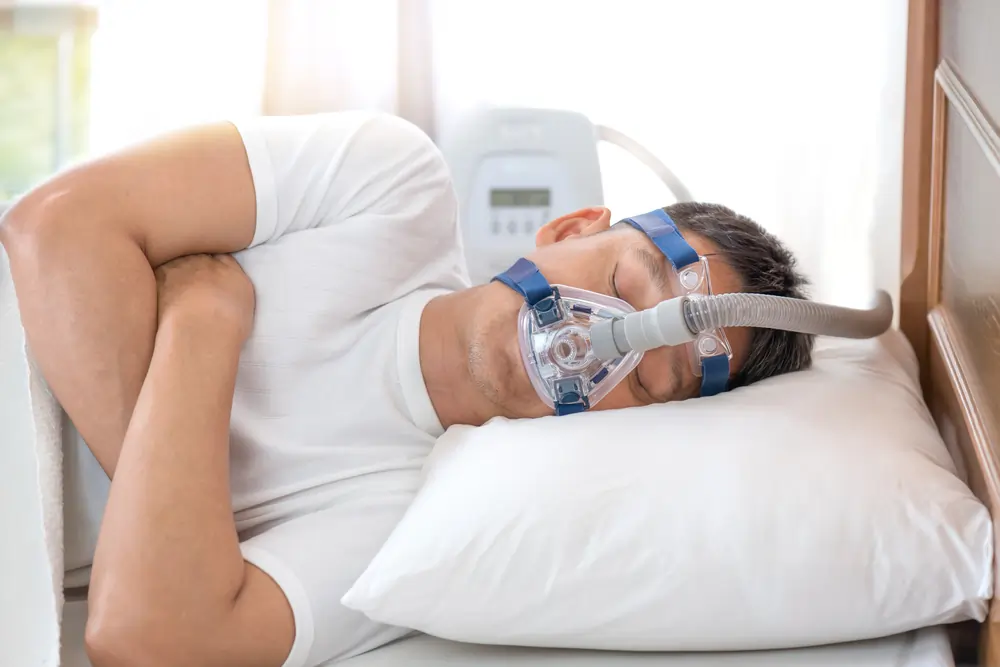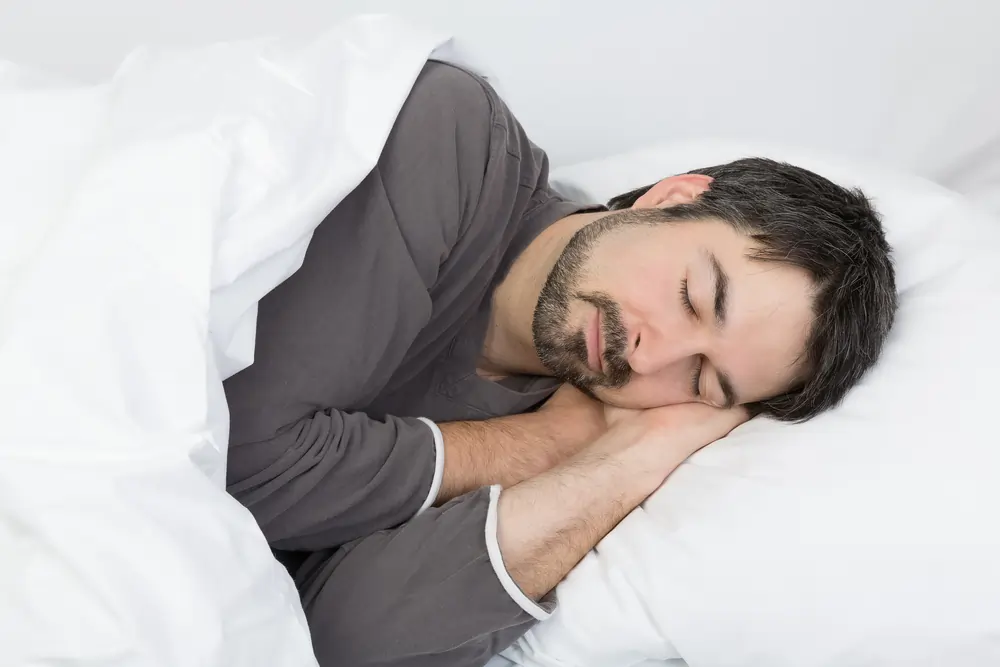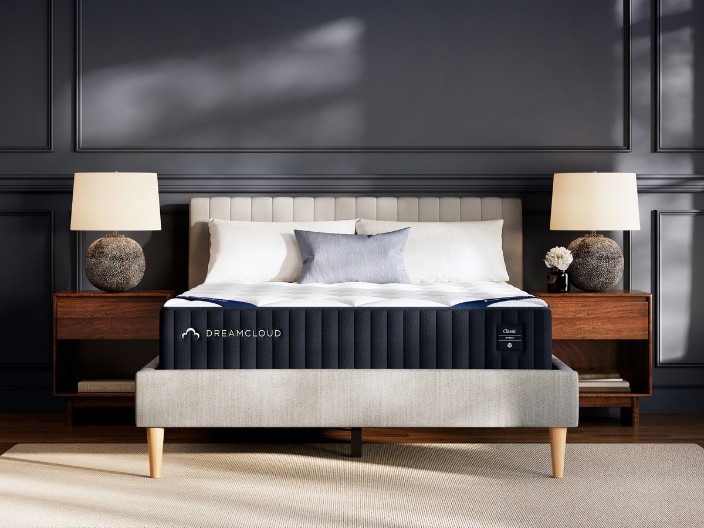Best CBD for Sleep & Relaxation
Share
Fact checked
Reviewed by experts
Updated
January 25, 2023
Quick read
4 mins to read
List of Content
Sleep is essential for overall health and well-being, and experts recommend at least 7 to 8 hours of sleep for adults. A proper night’s sleep ensures you are well rested, contributes to memory formation, helps grow and repair muscle and tissue, and prevents sickness.
But, the fastidious lifestyle of today can impact the 7-8 hours sleep schedule. One increasingly popular way to sleep better is by taking cannabidiol (CBD).
What is cannabidiol (CBD)?
Cannabidiol (CBD) is a derivative of cannabis that may help you sleep. It can also help with other health conditions; keep reading to know how much CBD for sleep is good, the benefits of CBD as a sleep aid, and more.
What Is Cannabidiol (CBD)
CBD, known as a cannabinoid, is one of many compounds found and extracted from Indian hemp. Hemp is a native plant to central and western Asia which has been used in folk medicine and as a source of textile fibre since the dawn of time, scientifically known as Cannabis sativa.
And though cannabis is known for its effects, such as “getting high,” it is due to another compound found in cannabis known as tetrahydrocannabinol (THC), precisely termed as “marijuana.” Even though both THC and CBD compounds are found in cannabis, CBD is non-intoxicating and exerts several beneficial pharmacological effects, such as aiding chronic pain, inflammation, migraines, epilepsy, autoimmune diseases, depression, and anxiety.
Furthermore, a fun fact is that CBD and THC have the same chemical formula of 21 carbon atoms, 30 hydrogen atoms, and 2 oxygen atoms. However, the difference lies in the arrangements of these atoms. With that being known, do CBDs help you sleep?
Benefits of CBD as a Sleep Aid
As mentioned before, CBD is non-intoxicating and exerts several beneficial pharmacological effects. For example, Islamic physicians used cannabis during mediaeval times to treat nausea, vomiting, epilepsy, inflammation, pain, and fever. In the 1800s, in western medicine, cannabis was used widely, and before aspirin, cannabis was a common painkiller.
Though it claims to help with sleep, CBD may not directly aid sleep disorders but helps combat anxiety disorder which can contribute to sleep disruption. According to a 3-month study, researchers found that patient records displayed a larger decrease in anxiety.
These results are consistent with the existing preclinical and clinical data and were well accepted, as judged by the clinicians’ and patients’ responses. And given the potential outcomes of CBD treating anxiety, it is speculated that CBD may help reduce insomnia-related anxiety.
Furthermore, in a study of four patients with Parkinson’s disease, researchers discovered that CBD improves the symptoms of REM sleep behaviour disorder (RBD). Although the results showed no reduction in RBD manifestations, an improvement in sleep satisfaction was noted.
Side Effects of CBD
There is a great potential medical use for cannabidiol (CBD), a non-intoxicating cannabinoid. And though cannabidiol (CBD) was approved by the FDA, it is not risk-free. Following are some negative effects of CBD for sleep.
Fatigue or Sleepiness
As this article focuses on CBD for sleep, this particular side effect sounds fantastic. Ensure to note the CBD dosage for sleep because when taken in higher doses, you are ready to unwind and get to bed. And stay put after administering your dose because CBD can have a mildly sedating effect.
Changes in Weight or Appetite
One of the most common side effects of CBD is appetite change. It may cause weight loss or weight gain. This can be helpful if you look for natural ways to control your appetite. However, discontinue the use if you notice that this side effect is affecting you detrimentally.
Stomach Upset or Diarrhoea
Another side effect of CBD is diarrhoea. A 3 months clinical study with 137 children and young adults with various forms of epilepsy reported that almost 50% of the patients experienced a reduced seizure frequency. In addition, the patients experienced some side effects: 21% experienced tiredness, 17% experienced diarrhoea, and 16% experienced reduced appetite.
What Forms Does CBD Come In
There are numerous products of CBD for sleep.
- Vape juices are one of the best CBD for sleep because they kick in almost immediately. However, the sooner they affect, with the same speed, they wear out.
- CBD oil for sleep gets to work quickly with long-lasting effects since they get absorbed faster into the body.
- CBD gummies for sleep or capsules can take a little longer to absorb than oil as it has to pass through the digestive system.
- There are also CBD topical solutions, which include lotions, creams, patches, gels, and ointments.
How Much CBD Should You Take for Sleep
When administering a foreign medicine, it is wise to start with small doses to ensure that you don’t have an adverse reaction. Professionals recommend 1-6 mg of CBD per every 10 lbs of body weight daily.
Furthermore, most studies demonstrated that as little as 25 mg of CBD each day is enough to improve sleep quality. Before you decide on anything, do consult your doctor first.
Final Words
CBD is a natural alternative to help you unwind and relax. Besides sleep, it can provide other beneficial pharmacological effects, such as chronic pain, inflammation, migraines, epilepsy, autoimmune diseases, depression, and anxiety.
As mentioned earlier, start with small doses. It ensures that you don’t have any negative reactions. And if you notice any side effects, discontinue the use.
FAQS
The individuals in most clinical studies on CBD and sleep received daily doses of 25 mg to 1,500 mg of CBD. It’s advisable to start with a small dosage and raise it gradually until you find a solution that works for you.
Although there hasn’t been much research on the effects of CBD use over the long term, it seems to be generally harmless. Although doctors are unsure if CBD promotes sleep, some data suggest that it may lengthen sleep.
You’ll probably feel wonderfully calm and even sleepy because CBD relaxes muscles, relieves pain, and even helps to lessen anxiety.
CBD can have side effects, including dry mouth, diarrhoea, decreased appetite, tiredness, and lethargy, even though it is frequently well tolerated.
Obesity cannot be treated with CBD, other substances, dietary supplements, or medication. These substances and supplements are not a good substitute for a balanced diet and regular exercise. Without also engaging in exercise and a healthy diet, a person who adds CBD to their weight loss plan may not experience any benefits.
In a 2019 study, it was discovered that CBD for anxiety reduced symptoms by between 300 and 600 milligrammes. Only 57 adult males were included in that study, though. “While 33 to 50 milligrammes per day are advised for PTSD, 25 to 75 milligrammes per day are advised for a generalised anxiety disorder or sleep disturbances.
This website does not offer medical advice nor professional medical services; rather, it is provided solely for educational, informational, and/or entertainment purposes. Individuals seeking medical advice should consult a licensed physician. The information provided should not be used for diagnosis or treatment of any condition, disease, or injury. When you have a medical condition, you should always talk to licensed doctor or other certified medical professional. You should never delay seeking professional medical advice or treatment based on the contents of this website. Call 911 or immediately go to the nearest emergency room if you think you may have a medical emergency. The contents of this website are provided “as-is”, Sleep Authority and its parent, subsidiaries, affiliates, employees, contributors disclaim any warranty of the information contained herein. Please contact using contact form to report any errors, omissions, misinformation, or abuse.
Sleep Authority is brought to you by Resident, the company that brings you Nectar, DreamCloud, Awara, Wovenly, Bundle, Home Well Designed and Level Sleep.










